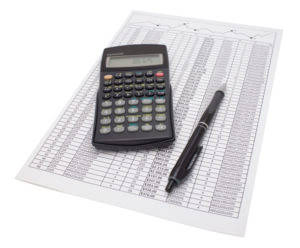
You might be reading this guide because you’re intent on doing the accounting yourself. American accounting has an enormous amount of rules and requirements. They’re important regulations, but they can also be overwhelming, especially if your real estate business is small. If you’re not sure where to get started, here’s some friendly advice—hire an accounting service for real estate professionals. Each time a transaction occurs, the income or expense is recorded under the appropriate category and account. A good real estate accounting system also allows details for each transaction to be entered, so that it is easy to understand what the transaction is for.

The Role of Real Estate Accounting Software
- If you’re looking for an affordable solution to your accounting needs, you may want to consider looking at our accounting templates.
- Property owners require it for financial oversight, while real estate professionals leverage it for strategic planning.
- Accrual accounting plays a pivotal role, especially in property management.
- Ultimately, accurate categorization is foundational for clear financial reporting and analysis.
- Ultimately, accurate and transparent accounting is foundational for REITs to maintain stakeholder trust and drive investments.
- Escrow property cannot be delivered toanyone, except in accordance with the provisions in the escrow agreement.
COVID-19 was also the most significant factor affecting the accounting and financial reporting requirements for real estate companies in 2020. With proper foresight and planning, your real estate business could capitalize on numerous tax benefits. There are a few important areas to consider when planning for tax savings.
Property Management Firms and Operational Efficiency
- For real estate professionals, software customization and scalability are crucial.
- Investors can benefit from features such as automated bookkeeping, expense tracking, and financial reporting.
- This type of accounting practice looks at the revenue generated by various properties and the following tax requirements.
- This flexibility ensures that real estate businesses can generate reports that truly reflect their operations and financial health.
- Regular reviews ensure that technologies are implemented smoothly.
- Whether it’s rental income, maintenance costs, or capital improvements, each has its place in accounting books.
- Effective real estate accounting practices enable agents to manage their finances efficiently, allocate resources wisely, and make strategic decisions to grow their business.
Going from property to property real estate accounting entries to sell, speak with clients, or monitor a network of properties requires a lot of time and travel. Many real estate businesses must remember to include these numbers in their real estate accounting procedures. Monitoring federal and state tax amendments and understanding property tax implications are crucial.

Property Owners and Financial Oversight
When you’re filing taxes, you can note depreciation of a property to protect your income. You can subtract the depreciation amount from your total taxable income, and that can save you a good deal of https://www.bookstime.com/ money. Your property tax may vary from year to year, depending on changes among the above conditions and whether or not your property’s value is reassessed. When accounting for assets, it’s important to have recorded “accounts receivable”. Digital bookkeeping, however, has taken the accounting world by storm.


Regular https://www.instagram.com/bookstime_inc reviews, performance analysis, and market trend evaluations are key components. Training sessions and advanced software solutions can further enhance investment optimization. For real estate professionals, optimizing investment returns is a core skill.

Regular reviews refine these summaries, ensuring they reflect accurate financial data. Training sessions offer insights into the nuances of year-end summaries. For real estate professionals, these summaries are crucial for annual planning and strategy refinement.